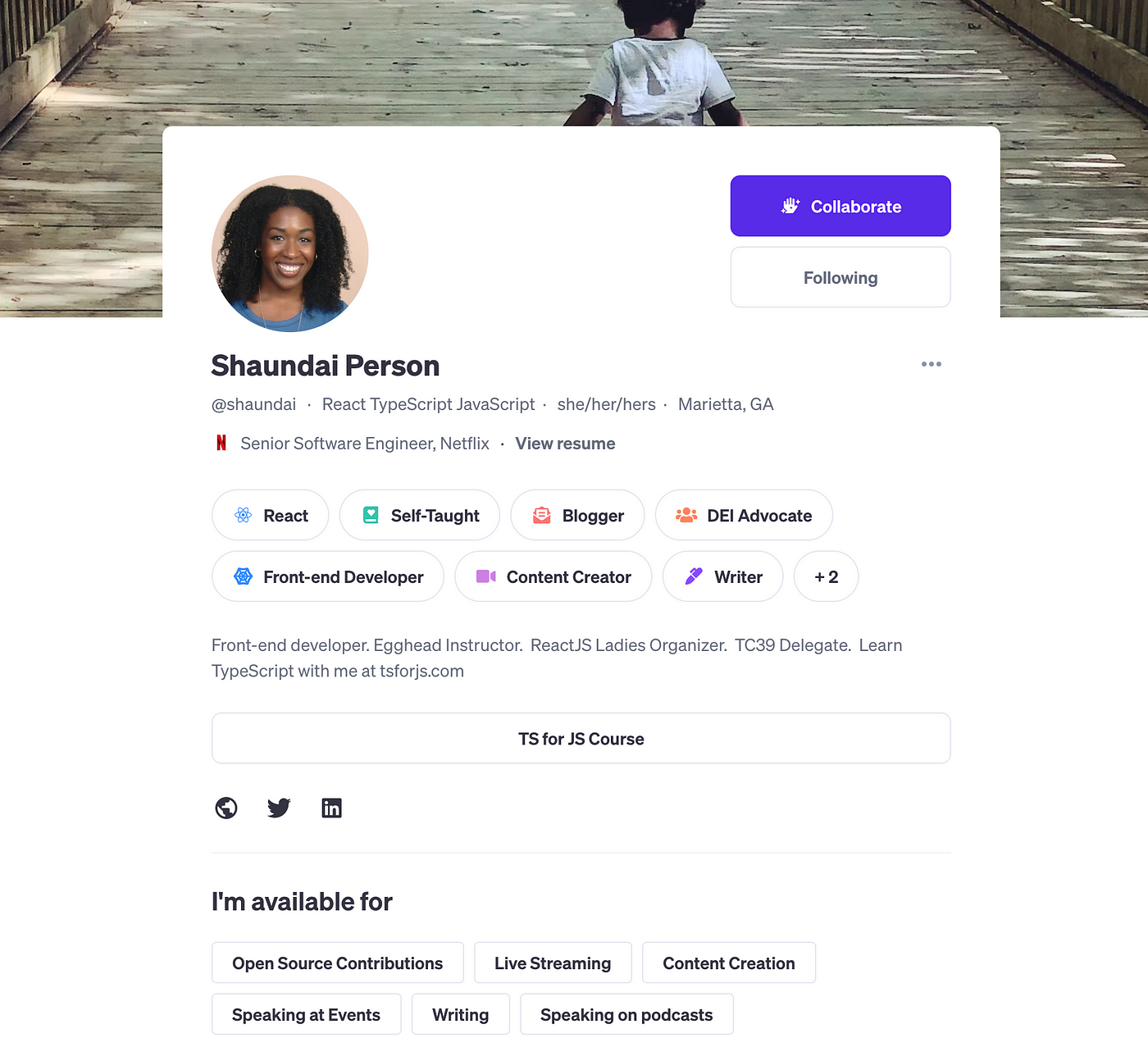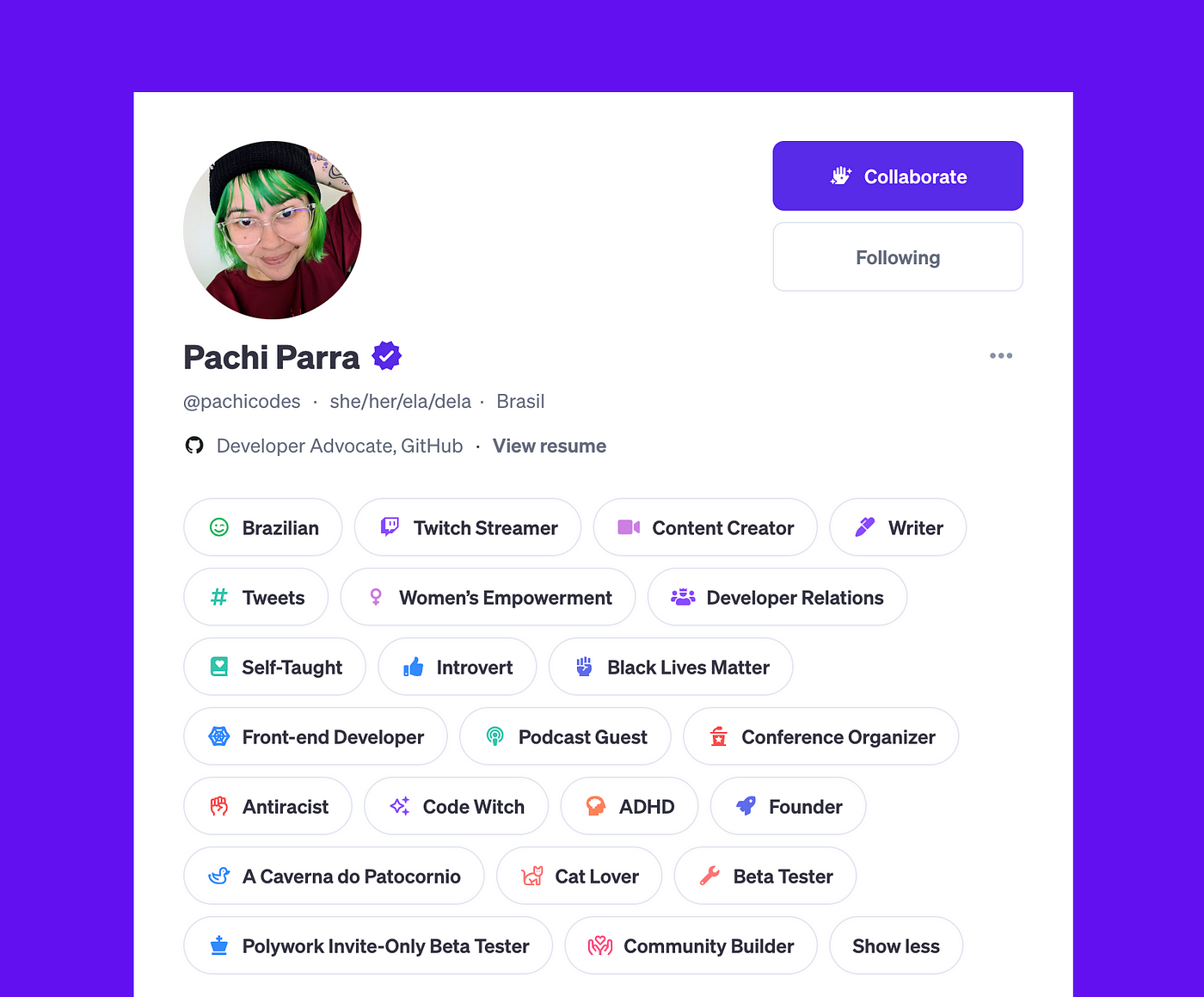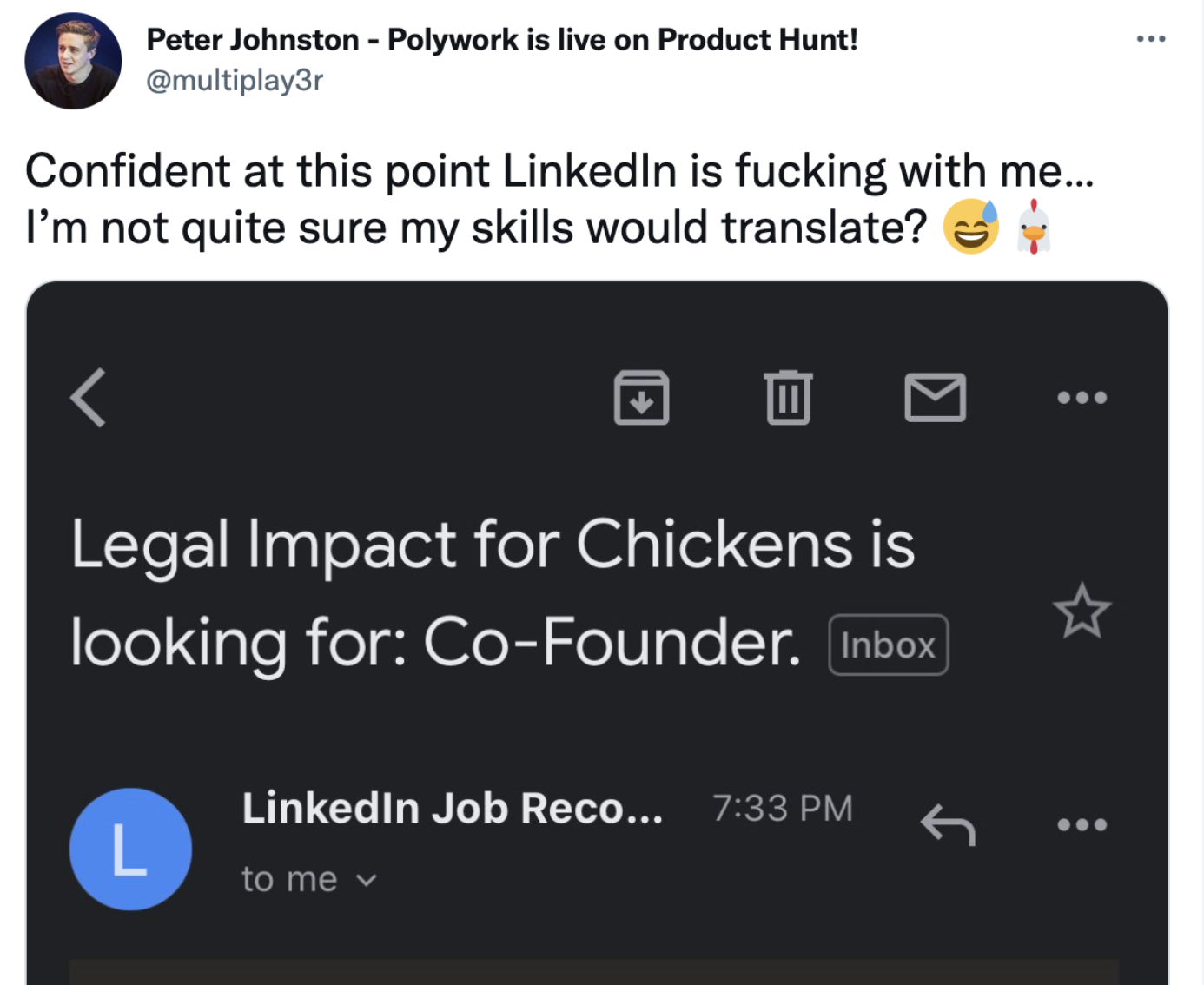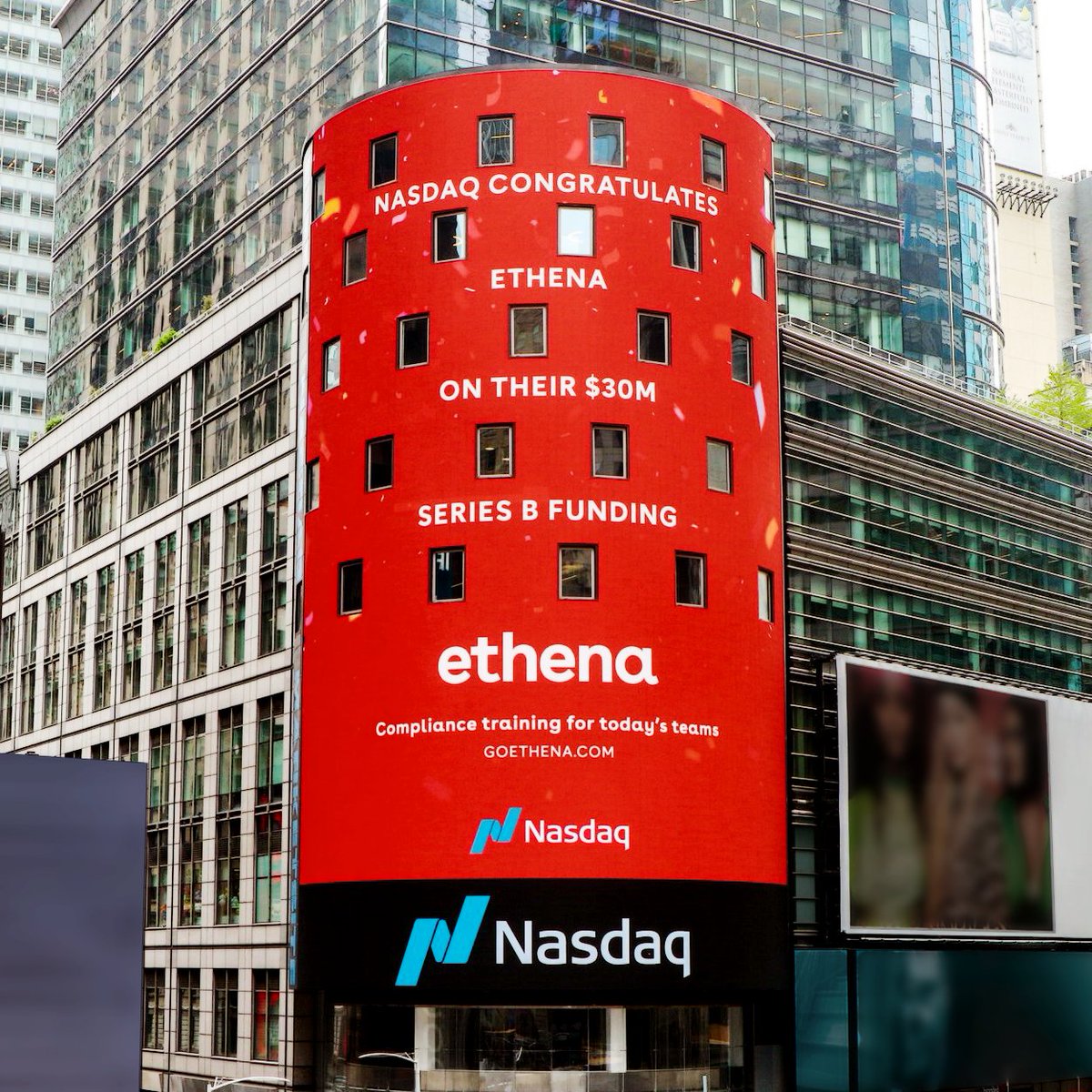Polywork raise $28 million in Series B funding
We launched Polywork last April when the world was in the midst of a pandemic. The reaction was more than anything we could have expected (I documented it here after one month live in the world). We had our viral moment, it seemed that we could do no wrong May through August. Polywork got more traction in its first 3 months than my previous company got over the course of six years (albeit very different companies) but you get the point. Our message about people being more than their job titles really struck a chord. The world was excited about how we were approaching the problem of professional identity and how people connect with one another today online.

The good, the bad and the brutal.
With this growth and hype came funding, (there were just three business days between our Seed and Series A funding). I mean we were one of the first consumer professional network apps to have seemingly drawn a little blood from the monolith that was LinkedIn, for the first time in a meaningful way, and in the 2021 market? Funding came very fast. Growth kept coming too. Professionals created over 15,000 unique identity badges, which is to this day probably still my favorite part of the product. We were empowering people to express themselves far beyond their job titles. Product Designer? Yes. But also Dog Dad, Vinyl Record Enthusiast, Figma Wizard, Hiker and more.


We had 100s of thousands of amazing professionals from Airtable, Tesla, Webflow, Snapchat, Github and more using Polywork to showcase what they do. Expressing their personality, their highlights, both social and professional. We then capped off the end of an incredible summer immortalizing the word ‘polywork’ in the dictionary. Lightning in a f*cking bottle. Why consumer founders do what they do.
The brutal
After the dust settled on the mega summer of hype, the data was telling a different story. There were early adopters who loved the product but retention was lacking in the broader group of users. We had serious work to do. We went heads down, not a single marketing effort, no PR, I barely tweeted. We spent September through December heads down, with our community, talking to them and shipping features.

I shared this graph yesterday on Twitter mainly as a public declaration that will always be there to remind me to keep f*cking going. By Christmas, our engagement had nose dived. We hadn’t worked out shit. I remember an investor joking with me with ‘You raised from everyone under the sun, if this one doesn’t work, you gotta move to New Zealand dude’. I chuckled nervously. Joking aside, S/O to the many folks that helped during this period, notably Joel Flory, founder of VSCO, who said (I’m paraphrasing) ‘Welcome to consumer, buddy’. He gave me some great tools to make sure my own health and mental well-being and that of my team, was being taken care of while we tried to wean ourselves off the dopamine we’d all engorged on in the months prior. Ultimately though, we kept shipping, talking to users, made some bets — and the hard work is starting to pay off.
2022 and what’s next — how do you connect the professional world?
We started Polywork to make it easier for professionals to connect with one another. We were frustrated that the focus of existing networks of job titles and schools attended and how in turn, this lack of ability to express ourselves was limiting our ability to connect with others and with opportunities.
If existing professional networks list only our job titles and schools and social networks like Twitter have devolved to screaming contests optimized for likes/followers etc, where do we go to really connect and do things together? How does a platform enable that?
Phase 1
In order to connect professionals with like-minded people you need to know things about them. Sounds simple enough? But think about it, how much does LinkedIn, Twitter or whatever other professional network actually know about us? Who are people, what are their interests, what do they care about and what they want to do — who do they want to be? The first phase in our journey last year was launching our single player product called Polywork Pages: a place for professionals to express all the things they do, (see my poly.me/peter). Now, forgive me as I delve into the details a little bit but at the core of this first product is our structured data graph.
First we start with who people are and their interests:

Identity Badges: Product Designer, Founder, Irishman, Dog Dad, Tequila Enthusiast, Angel Investor, Mentor, Basketball, Yu-Gi-Oh fan. 15,000 unique structured identity atoms — from Coffee Enthusiasts, Life-Long Learners, to LGBT, BLAHAJ Lovers, Frog Moms and Figma Wizards.
Then, what people are experienced in:

- Experience Activities*: Launched an Etsy Store, Hosted a Podcast, Designed an iOS App, Designed a dress, Traveled to Venice, Homeschooled kids. Structured information about things people have done.
*not to be confused with skills, skills dont actually tell us what a professional has done before.
And then finally:

- Goals and Plans: Open to partnering on side projects? want to speak on a podcast? Open to starting an Etsy store? Write a book? We have thousands of categorized things people want to do.
So with this timeless data graph of who people are today, their interests, their experience and a map of what they want to do we embarked on phase two. Time to connect people, to people. To try to create a world where anyone and everyone can polywork — follow their passions, connect and collaborate with more people and make more money.
Today and the future
That brings us to today and I’m thrilled to announce our $28 million Series B that will help us achieve our very big vision. The round was co-led by existing investors Nat Friedman (former GitHub CEO) and Caffeinated Capital with participation from Andreessen Horowitz (who led our Series A), Bungalow Capital, and individuals including Elad Gil, Maverick Carter, Fidji Simo, Mariam Naficy and Baron Davis. I’m excited too to welcome to the round, the founders of Stripe, Lyft, Clubhouse, Instacart, Lattice, Minted, Divvy Homes and more. Truly honored to get to share space, ideas and learn from these sorts of talented people.
This week Polywork becomes a multiplayer product for everyone— a place to discover opportunities to collaborate. Want to partner on a side projects? Speak on a podcast? Maybe join a cycling group with other product designers? Or check out which professionals at Airbnb or Google are open to angel investing? We’ve been hard at work building an experience that helps professionals connect and collaborate with anyone, on anything. (We trademarked that last part 😎).
To give some perspective on why I’m excited about what we’ve built I want to highlight just how hard, even some of the big successful players like LinkedIn find it, when it comes to matching people and connecting them. (Caveat: we are not taking on LinkedIn. LinkedIn = full time work opportunities. Polywork = collaboration opportunities). We are a network to connect people to one another so they can collaborate on anything they want). I use LinkedIn here only as an example of just how hard, despite their amazing success, it is to connect and match people to opportunities in an automated way).


I’ve been on LinkedIn for 14 years and a few months ago, I tweeted that they emailed me that I should check out a job as Painting Field Manager in Lancaster, California. Im a product designer/tech founder living in Brooklyn, New York— and Ive never lifted a paintbrush in my life. Similarly, they then recommended me a job as a co-founder of Legal Impact for Chickens. The industry has barely scratched the surface of leveraging data and technology to connect professionals at scale.
To contrast with the struggles of networks like LinkedIn to connect people to one category of work (full time), due to our investments in data, on Polywork, you could search for:
A <Product Designer> in <New York>, who has <designed an iOS App> and <created a design system> that is a <vegan> and a <dog dad> that is <open to partnering on side projects> and <speaking on podcasts>.
Or show me <founders> who are also <software engineers> that are open to <collaborating on music investments> and <funding fashion projects> in <LA> and <NYC>. I’ve connected with two people this way and am now doing projects with them.
How do you connect the professional world? We believe this is how. We’ve all seen what Tiktok’s advances in data and machine learning have done to the social world. We’re going to do that to the professional world. The future of connecting people to people in a relevant, curated, high signal way is AI and we want to be at the forefront of that. We’ve been testing our multiplayer experience in private beta for the last 6 months and while we have a long way to go, the reaction has been wonderful so far, with people connecting and collaborating on everything from side projects, to speaking on podcasts, testing apps, joining Clubhouse discussions, reviewing books, joining cycling groups and more — Polywork is becoming a discovery engine for professionals wanting to find like minded people to collaborate with.
Thanks
Lastly I want to give a huge thanks to my team for their relentless work over the last year to get us where we are today, for keeping their heads down and shipping. And to Nat Friedman, Ray Tonsing and Sriram Krishnan for working with me over the last year and doubling down on us — I’m learning a ton from all of you and am super grateful to have you onboard for the journey. To Bobby Lo, Ryan Hoover, Heston Berkman, Joel Flory and others who helped be a sounding board for the product over the last year, thank you.
We are still in the 1st innings, but we now have the capital and the runway to build towards a massive vision. We’ll be focused on empowering every person on the planet to polywork. My team and I will continue to execute relentlessly and ship what our users need in order to connect and collaborate together. We believe that particularly in a post pandemic world, that we have all considered more and more, what the f*ck is going on? Who am I? What do I want to do? We believe people are not meant to do just one thing for one company their whole lives, we believe they’re meant to explore, follow passions, collaborate with people, try things and fail. And as long as that’s true, there will be a place in the world for Polywork.
Thanks for reading, and if you want to collaborate, im open to mentoring, playing basketball in NYC, and giving pitch deck feedback to early stage consumer companies. Check me out here: poly.me/peter
source: https://medium.com/@mu1tiplay3r/announcing-polyworks-series-b-and-our-big-vision-2d8f92e51226

